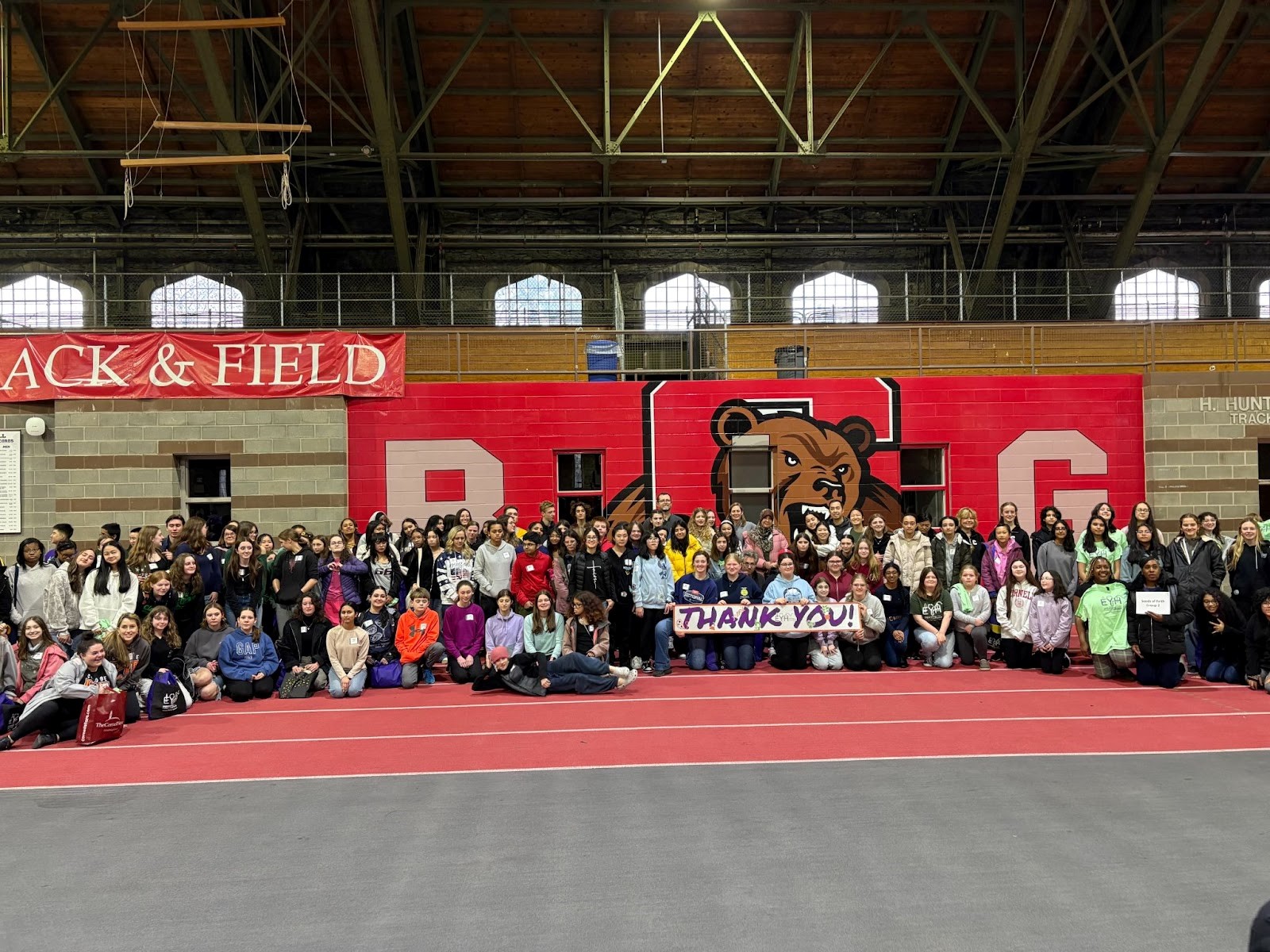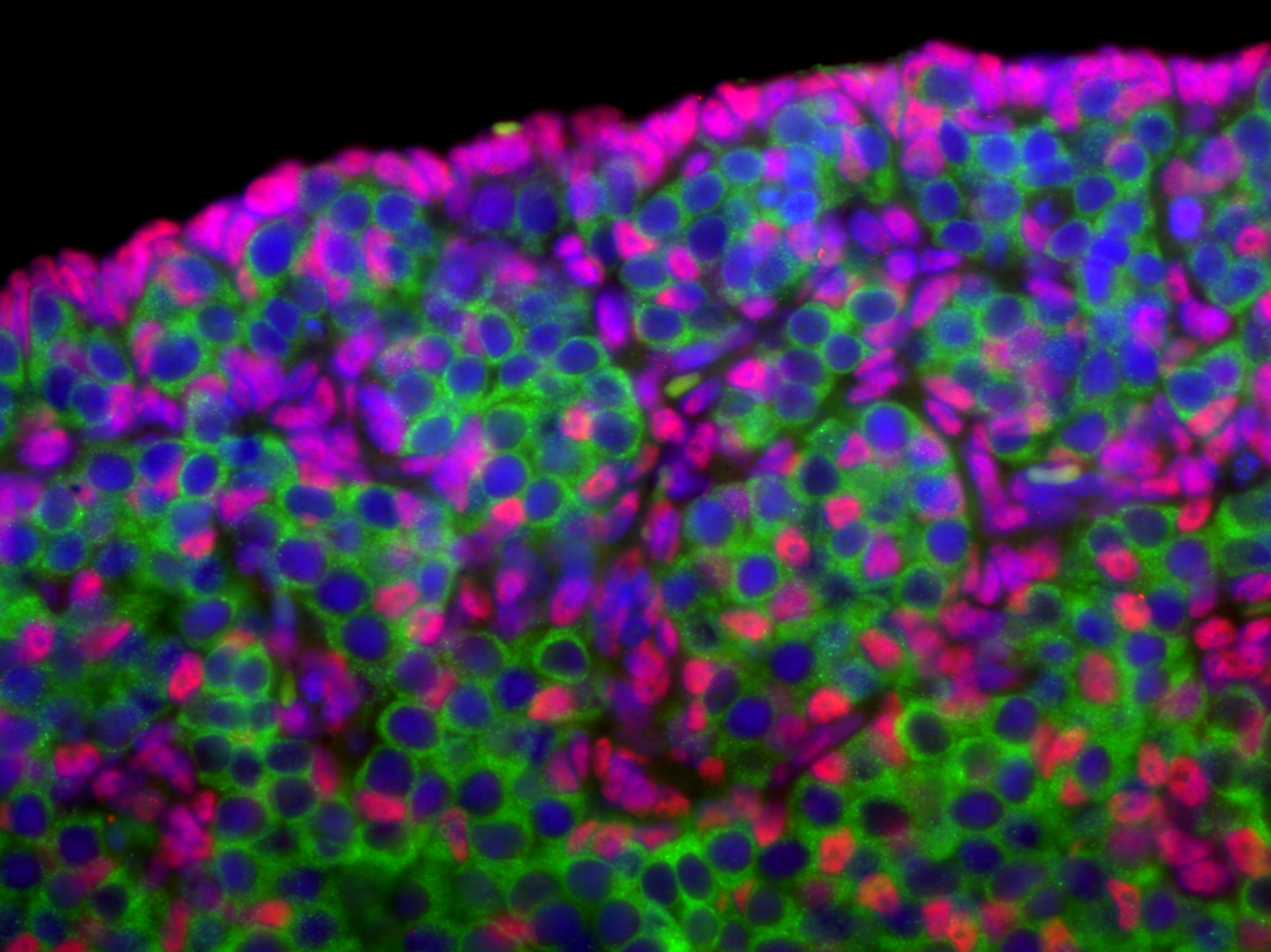
Mission
The Cornell Reproductive Sciences Center (CoRe) Trainee Special Interest Group (T-SIG) is a multi-disciplinary group of trainees spanning biomedical, clinical, veterinary/animal, and social sciences across the Ithaca and Weill Cornell campuses. Members are trainees at any stage of their career development, including but not limited to graduate students, postdocs, medical residents, and clinical fellows. The overarching goals of the CoRe T-SIG are to provide trainees with opportunities for sharing their research, networking, and career development. As part of our commitment to continuing Cornell’s prestigious history of reproductive research, our mission is to foster the development of trainees in an inclusive, strong, and collaborative community of scientists, clinicians, and health experts. CoRe places a strong emphasis on training, career development, and diversity – to that end we are welcoming of all trainee researchers regardless of socioeconomic status, ability, race/ethnicity, gender identity/expression, sexual orientation, or religion.
As part of our commitment to training and career development, the CoRe T-SIG will organize trainee-focused opportunities such as provides a trainee chalk talk series, workshops on mentorship, leadership, research program development, and paper and grant writing. The CoRe T-SIG will also provide programming in the form of trainee-led activities, high visibility invited seminars, and our ongoing and hugely successful annual symposium. When available, we will facilitate small grant opportunities to provide funds for small seed projects and other collaborative interactions among our trainees.
CoRe Trainees Statement on Dobbs v Jackson Women’s Health Organization
Recently in their ruling on Dobbs v. Jackson Women’s Health Organization, the conservative super-majority of the Supreme Court overturned Roe v. Wade. Three generations have grown up in a country with a constitutional right to abortion. Now, after 50 years – more than a fifth of our nation’s history – the protections offered in Roe have been negated. Abortion rights will be decided on a state-by-state basis, with roughly half the country poised or predicted to outright ban abortion (indeed, some states have already reinstituted a ban). The Cornell Reproductive Science Center (CoRe) Trainee Special Interest Group (T-SIG) was horrified by the news. We stand with everyone who already has or is about to lose essential components of their reproductive health care. Although Court’s ruling centers its language on women, we want to make it very clear that losing Roe impacts more than only cis women – many trans men, nonbinary and intersex people also require access to a full range of reproductive health services, including abortion. For many of these people – especially people of color and those in the LGBTQ2I+ community – access to reproductive health care prior to Dobbs was already fraught. Moving forward, the rights and lives of millions of Americans will be precarious, and their futures subject to the whims of state legislatures.
The Dobbs ruling impacts our community more profoundly than a simple, succinct tweet can capture. In the coming weeks, we will be sharing resources, analysis, and personal experiences from CoRe members in order to highlight the myriad of ways the loss of abortion rights affects us, as individuals and a community.
Trainee Executive Committee
Welcome! We are an interdisciplinary group of trainees interested broadly in the field of reproduction. We welcome trainee membership with broad interests in reproduction such as (but not limited to) mechanisms of reproductive physiology, conservation biology, health economics, gender, equity, and inclusion in reproductive health, and evolutionary biology.
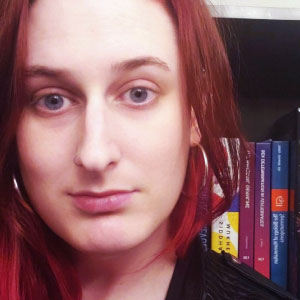
Postdoctoral Associate in Paula Cohen’s lab studying crossover regulation in mammalian meiosis.
Tegan Horan is a Leading Edge Fellow and a postdoctoral researcher in Paula Cohen’s lab in the department of Biomedical Sciences. She has had an unconventional research trajectory, having earned masters degrees in genetics and cultural anthropology (from the University of Adelaide and Washington State University, respectively), before completing her PhD Patricia Hunt’s lab. Prior research foci have included the evolution of mammalian meiosis and management of the platypus ten sex chromosome chain in spermatogenesis; the materialization of identity and relationships through dress; and the effects of environmental estrogenic exposures (e.g., BPA) on the developing germline and fertility. The uniting thread throughout her work has been a persistent drive to understand the complex, interconnected biological and cultural factors that shape sex and gender – with particular interest in sexually dimorphic development of the germline. Her current work centers on the regulation of and cross-talk between class I and class II crossover pathways in meiosis.
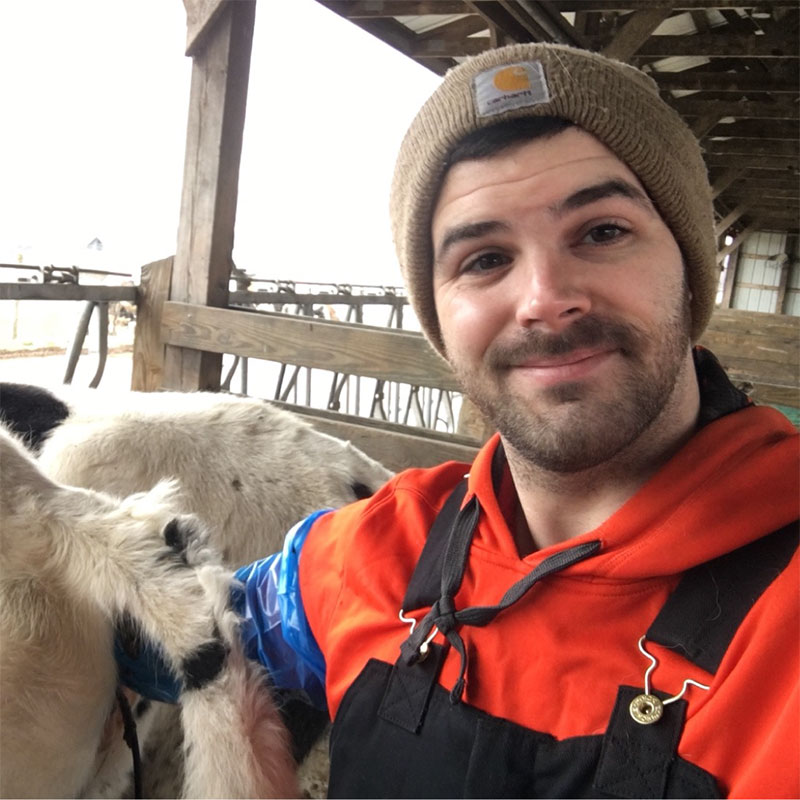
Postdoctoral Associate working with Ned Place and Paula Cohen to understand aging in the reproductive tract.
Connor Owens (he/him/his) is from Norfolk, VA and has mainly performed research on female reproductive physiology. His masters and doctoral work at Virginia Tech focused on influences of the uterine microbiome on dairy calf gut development and heifer reproductive performance. Currently, he is a Postdoctoral Associate in Dr. Ned Place’s lab in the College of Veterinary Medicine examining ovarian aging and meiotic progression in naked mole rats and mice. He hopes to have a career in academia with a lab that utilizes dairy cattle and mice to examine interactions between bacteria and uterine physiology.
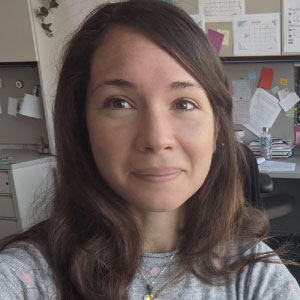
Postdoctoral Fellow in Paula Cohen’s lab studying the role of long non-coding RNAs in spermatogenesis.
Mercedes Carro is from Mar del Plata, Argentina. She developed her masters and doctoral work in the study of female and male gamete cryobiology applied to animal production. This provided her with a background in gamete physiology, quality and experience in assisted reproductive techniques. Looking for a more profound understanding of the gametogenesis process and its relationship with infertility, she started a postdoctoral experience at the Cohen Lab working in male meiosis. Mercedes loves outreach and mentoring and hopes to continue in Academia as a facilitator for other trainees to develop their careers.She is now enjoying the challenging experience of understanding gene regulatory pathways involving non coding RNA and RNA binding proteins (RBPs) during spermatogenesis.
Argonaute proteins from the subclass AGO represent a highly conserved gene family of RBPs found in the cytoplasm where they associate with small ncRNAs to form the RISC complex (RNA-Induced Silencing Complex) and silence target mRNAs. However, evidence suggests that AGO–RNA complexes can also regulate nuclear events such as transcription, genome maintenance and splicing. Of the four mammalian AGOs, AGO3 and AGO4 are highly expressed during meiosis, in mouse spermatocytes.The Cohen Lab has previously demonstrated that these proteins reside in the nucleus of the male germ cell, at sites of asynapsis and in the transcriptionally silenced XY subdomain named the sex body (SB). Moreover, lack of AGO4 results in dramatic loss of small ncRNAs, more than 20% of which arise from the X chromosome. The goal of my research is to describe the role of Argonaute proteins and their small ncRNA cargoes as key regulators of gene expression during meiosis.
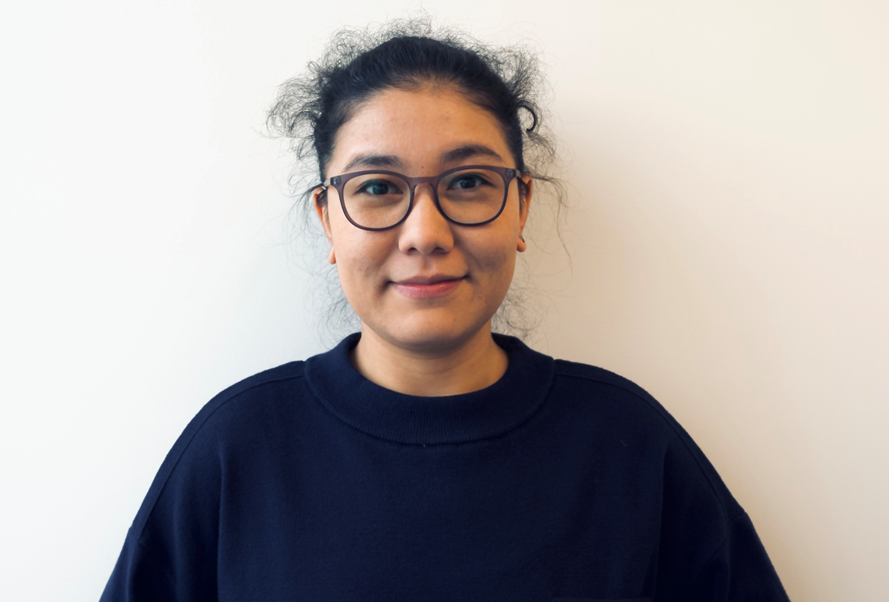
Postdoctoral Fellow in John Schimenti’s lab working on the effect of genomic instability during embryonic and placental development.
Munisha is a NYSCF Druckenmiller Postdoc Fellow in the Schimenti lab, investigating the potential impact of genomic instability in the mouse and human placenta development. She is frum Urumqi, China and belongs to the Uyghur ethnicity. Despites completing medical school in China with an initial goal of becoming an Obstetrician, Munisha chose to further her training and education in embryonic development by joining a PhD program at the University of Georgia. Her doctoral research focused on unraveling the mechanisms that regulate the transition from cell proliferation to cell fate specification in Zebrafish embryos. In the Schimenti lab, Munisha continues her exploration in embryonic development, specifically delving into how replication stress and other genotoxic stresses can affect trophoblast lineage development and function.
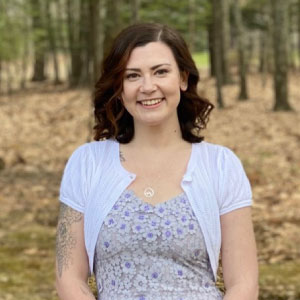
Graduate Student in Paula Cohen’s lab looking at how non-coding RNAs from the male germline impact embryonic development.
Amanda Touey May is from Northeastern Pennsylvania and earned her Bachelor’s in mammalian physiology from the Pennsylvania State University before completing a Master’s in Biomedical Sciences from the Geisinger Commonwealth School of Medicine. Following time spent as an adjunct instructor in anatomy and physiology, Amanda began a second master’s program in Cell Molecular and Developmental Biology at Villanova University where her research focused on ovary culture and the role of BET proteins in the zebrafish germline. Currently Amanda is a PhD student in Paula Cohen’s lab in the field of Genetics, Genomics and Development. Currently her research is focused on understanding the role of Argonaute proteins and their associated smallRNAs in spermatogenesis and early development.
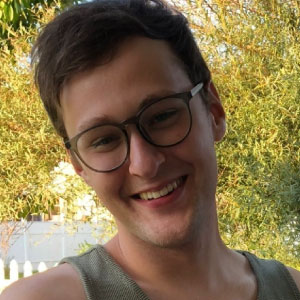
Graduate Student working with Mariana Wolfner and John Schimenti to understand egg activation in flies and mice.
Jonathon is a PhD student co-advised by Mariana Wolfner and John Schimenti in the department of Molecular Biology and Genetics. He studies the oocyte-to-embryo transition known as egg activation in both fruit flies and mice. Jonathon is a PhD student working to understand how intracellular calcium signaling and global protein phosphorylation state changes regulate the onset of embryogenesis, and how different organisms make use of these conserved features of egg activation. He has a BS in Cell and Developmental Biology from the University of Rochester; there, during his post-grad work in Michael Welte’s lab, he studied the mechanisms by which fat storage organelles called lipid droplets and the actin cytoskeleton regulate oocyte maturation in flies. He is excited to continue learning about fly oocyte development and to branch into a mammalian model system during grad school to understand the similar and different ways that insects and mammals begin embryogenesis, and how disrupted egg activation affects fertility and embryonic development.

Graduate Student in John Schimenti’s lab studying the impact of the Chaos3 genomic instability mutation on placental development using trophoblast stem cell models.
Rui Huang is originally from Wuhan, China and is currently a Ph.D. candidate under the guidance of Dr. John Schimenti in the Biochemistry, Molecular, and Cell Biology program. She earned her BS from Wuhan University, and she completed her honored undergraduate research thesis at Duke University. There, her research was dedicated to exploring how ribosomal proteins influence the development of the reproductive system in the C.elegans, a commonly used model organism. Her current research in the Schimenti lab is centered on understanding how genomic instability affects the development of the placenta in both mice and human. This work is particularly focused on employing trophoblast stem cells as an in vitro model to unravel the mechanisms that lead to trophoblast lineage abnormalities when faced with DNA replication stress.
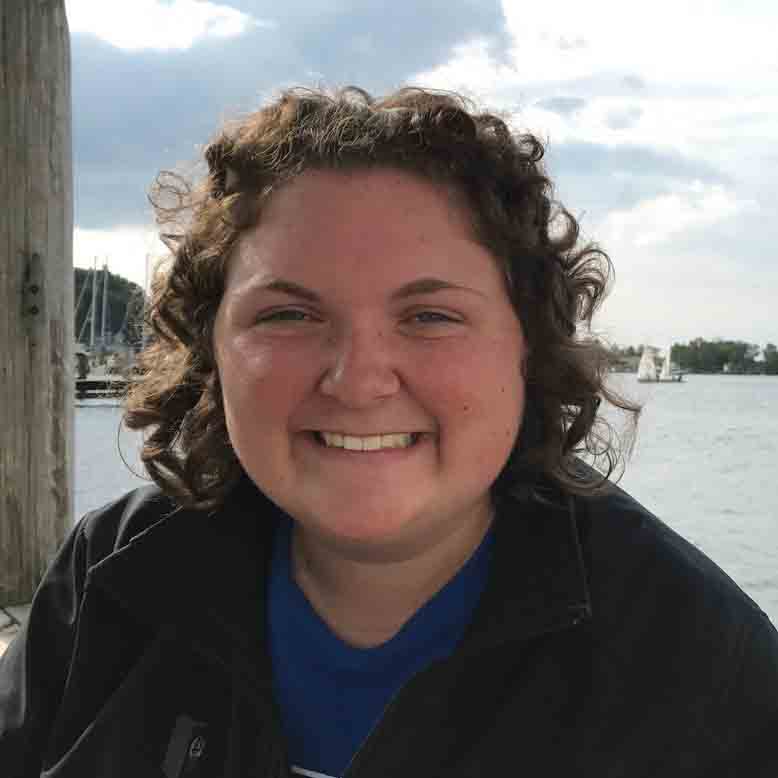
Graduate Student in Paula Cohen’s lab working on identifying genetic targets for a non-hormonal male contraceptive.
Stephanie Tanis is originally from Grand Rapids, Michigan. She is currently a Ph.D. candidate in Dr. Paula Cohen’s lab in the field of Genetics, Genomics and Development. Prior to arriving at Cornell, she completed a BS in Biomedical Sciences from Grand Valley State University and a MSc. in Molecular Biology and Evolution from the University of Kiel (Germany). Her master’s research focused on understanding meiotic recombination placement and its impact on genome dynamics. Her current research in the Cohen lab aims to identify new genetic pathways that orchestrate meiotic entry using CRISPR/Cas screening for non-hormonal male contraceptive research. Having grown up near the Great Lakes, Stephanie enjoys spending her free time on the water, either sailing or boating.
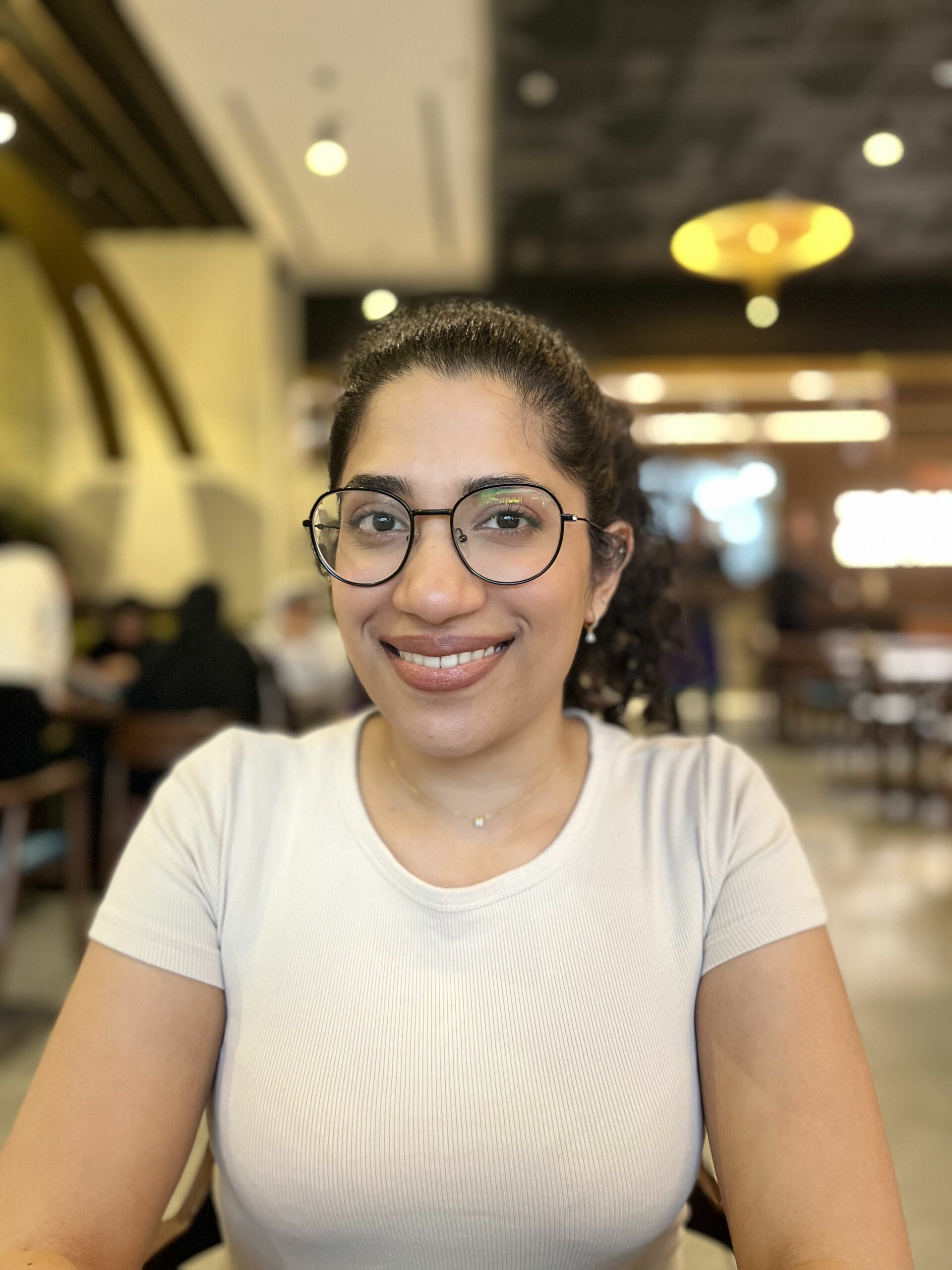
Graduate Student in Paula Cohen’s lab investigating the disruption of meiosis as a male contraception strategy.
Leah Simon is an Indian national born and raised in Dubai, UAE. Leah completed her masters degree at Northwestern University studying female reproductive aging and endocrinology. Following this, she worked as a research technician developing a high-throughput mammalian ovulation assay to test novel female contraceptive drugs. Presently, Leah is a graduate student in the lab of Dr. Paula Cohen and her project investigates the disruption of meiosis as a male contraception strategy.
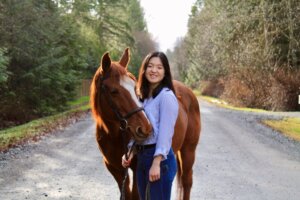
Graduate Student in Paula Cohen’s lab investigating the dynamics of crossover formation in mammalian oocytes.
Anna Wood grew up in Seattle, Washington and is currently a Ph.D. candidate in Dr. Paula Cohen’s lab in the Biochemistry, Molecular, and Cell Biology program. She received her BS from Washington State University, where she investigated how defects in crossover formation impact human oocyte quality in the lab of Dr. Terry Hassold. Following graduation, she worked as a research technician at the Fred Hutchinson Cancer Research Center in the lab of Dr. Harmit Malik, where she studied the function of a rapidly evolving histone variant in mammalian reproduction and embryonic development. Her current research project in the Cohen lab is focused on understanding how crossovers are formed in mouse oocytes.
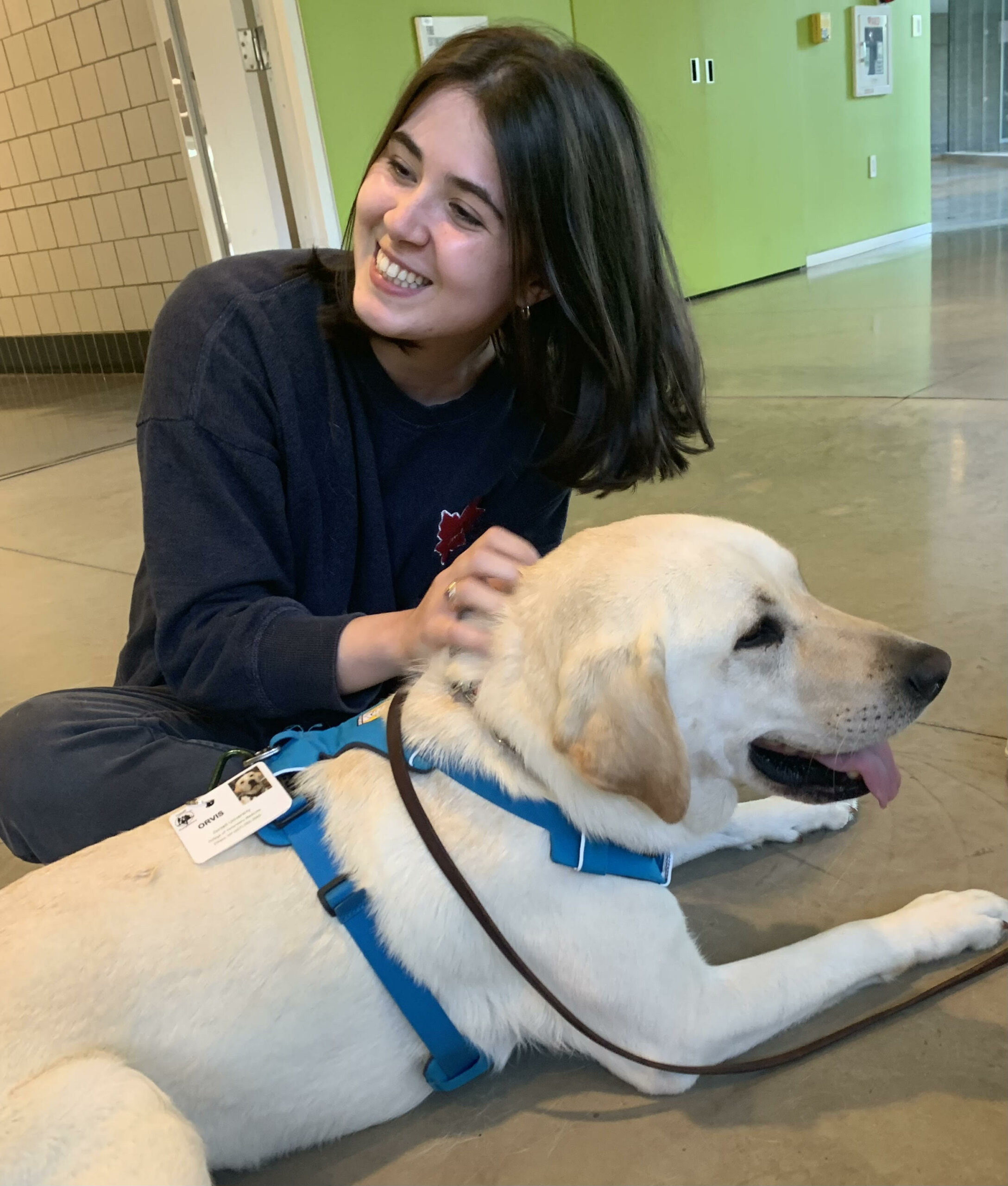
Graduate student in Dr. Paula Cohen’s lab studying the protein network underlying crossover designation in mammalian meiosis.
Rachel Bradley is originally from just outside of Toronto, Canada. She attended the University of Toronto where she earned her HBSc in Molecular Genetics. During her undergraduate studies she worked in the labs of Dr. Andrew Wilde, where she investigated mammalian profilin isoform dynamics and how they contribute to the heterogenous structures of the actin cytoskeleton, and Dr. Miguel Ramalho-Santos, where she studied the effects of environmental stress on the expression of transposable elements in mammalian embryonic stem cells.
At present, Rachel is a Ph.D. candidate in Dr. Paula Cohen’s lab. Here, her research project focuses on interrogating the interplay and temporal dynamics between different protein components in crossover formation and patterning in mammalian meiosis.


